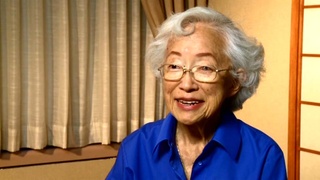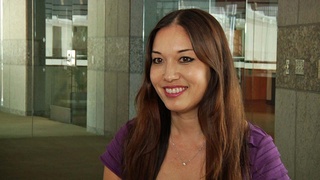Interviews
Racism doesn't end
One of the reasons why I married Jim, I’m sure, was because he was Caucasian and, you know, he would protect me and that would be my way to be in and acceptable and all this kind of thing and we would have children who would never have to suffer like I did.
But lo and behold…so I never thought of that, that there would be any racial aspect but when they grew up, after the teenage years, they said, “Oh, yes, yeah. Oh it was terrible. They called me, you know, Chinaman and chink” and all these name calling to my kids. And I said, “Well, it doesn’t end.” But of course they had a much more stronger sense of themselves, much more self-esteem so that they could, you know, fight back or…and they never said anything to me. But I was so shocked, felt so hurt when they told me that. That they, too, experienced racism.
Date: December 27, 2005
Location: California, US
Interviewer: John Esaki
Contributed by: Watase Media Arts Center, Japanese American National Museum
Explore More Videos



Traumatic experiences before camp
(1913-2013) Doctor specializing in obstetrics in Southern California

“Everybody went in like sheep”
(1913-2013) Doctor specializing in obstetrics in Southern California

Discrimination for Nisei doctors
(1928–2016) Daughter of an Issei doctor


His clothes are part of his identity
(b. 1981) Enka Singer

Hopes everyone pursues their dreams regardless of race or heritage
(b. 1981) Enka Singer

Considers Pittsburg his home, but always wanted to live in Japan
(b. 1981) Enka Singer



Marriage during anti-miscegenation laws
(b. 1930) Half Japanese and grew up in both Japan and the United States.

Growing Up in Japan
(b. 1930) Half Japanese and grew up in both Japan and the United States.

Fitting in to both sides of her family
Jewish Japanese American journalist

